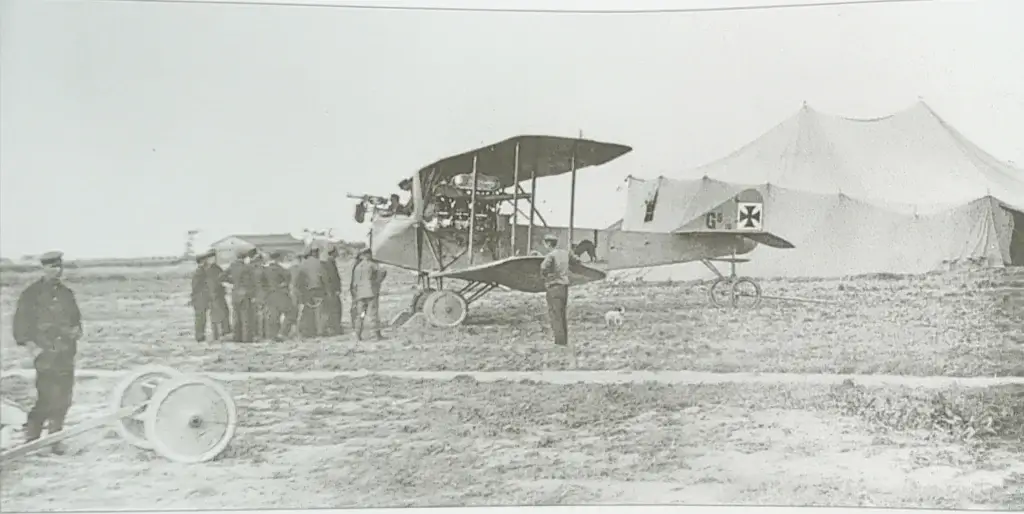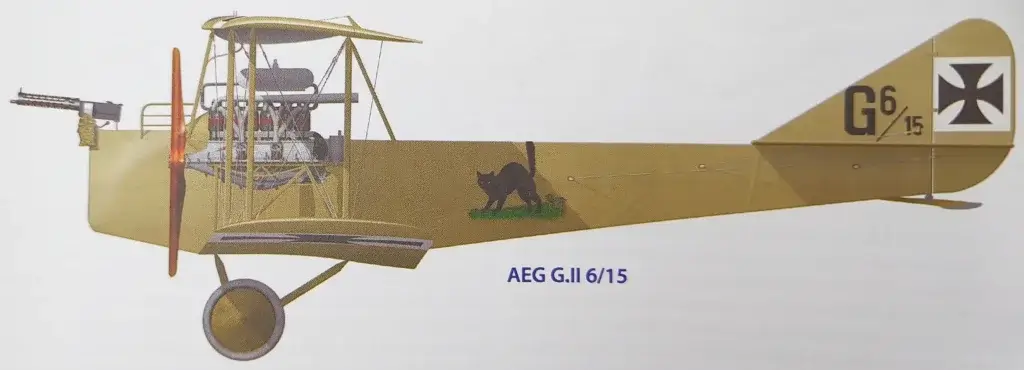Ostend Racing Pigeon Department.
Event ID: 109
Categories:
22 August 1915
Source ID: 4
‘Rußland-Ostende (From two-seater to large fighter aircraft) After our activities in Russia came to such a gentle halt, I was suddenly transferred to a large fighter aircraft, to the B. A. O. in Ostend (21 August 1915). There I met an old acquaintance, Zeumer, and I was also tempted by the name ‘large fighter aircraft’. I arrived in Ostend on 21 August 1915. My good friend Zeumer had picked me up at the railway station in Brussels. I actually had a very nice time, but there was little warlike about it, but it was indispensable as an apprenticeship to become a fighter pilot. We flew a lot, rarely had air battles and were never successful. On the other hand, life in general was very enjoyable. We had requisitioned a hotel on the beach at Ostend. We bathed every afternoon. Unfortunately, only soldiers were to be seen as spa guests. We sat on the terraces of Ostend, wrapped up in our colourful bathrobes, and drank our afternoon coffee. * Once again, as usual, we were sitting on the beach with our coffee. Suddenly a whistle blew, which meant that an English naval squadron had been reported. [Of course, we didn’t let such alarm messages disturb our cosiness and continued drinking. Then someone shouted: ‘There they are!’ and indeed we could see some smoking chimneys on the horizon, albeit not very clearly, and later also ships. We quickly grabbed our binoculars and started observing. We saw a considerable number of ships. What they were actually doing was unclear to us, but we were soon to be proved wrong. We climbed onto the roof to see more from up there. Suddenly there was a whistle, followed by a huge bang, and a shell hit the beach where we had just been in the water. I’ve never plunged into the Heldenkeller as quickly as I did at that moment. The English squadron fired at us perhaps three or four more times and then mainly targeted the Ostend harbour and railway station. Of course they didn’t hit anything. But they caused the good Belgians a lot of excitement. One shell went right into the centre of the beautiful palace hotel on Ostend beach. That was the only damage. Fortunately, it was English capital that they destroyed themselves. * In the evening we flew again. On one of our flights we had got very far out to sea [57] with our large fighter aeroplane. The thing had two engines, and we were mainly trying out a new control system that would enable us to fly straight ahead even with one engine. As we were quite far out, I saw a ship floating below us, not on the water, but – as it seemed to me – under the water. It’s quite peculiar: you can see down to the bottom of the sea from above when the sea is calm. Not forty kilometres deep, of course, but you can see through a few hundred metres of water. I wasn’t mistaken that the ship wasn’t floating above the water, but under it, and yet I could see it as if it were on top. I drew Zeumer’s attention to this and we went down a little deeper to get a closer look. I’m not enough of a naval man to be able to say straight away what it was, but I did realise that it was a submarine. But of what nationality? That’s another difficult question that I think only a naval man can answer – and not always. The colour is almost impossible to recognise. The flag even less so. Besides, a submarine doesn’t have anything like that. We had two bombs with us and I was very much in doubt: should I throw them or shouldn’t I? [58]The submarine hadn’t seen us because it was half under water. But we were able to fly over the thing quite calmly and we could have waited for the moment when it came up for air to lay our eggs. This is definitely a very critical point for our sister weapon. As we had been messing around with the guys down there for quite a while, I suddenly realised that water was gently coming out of one of our coolers. As ‘Franz’, this didn’t seem quite right to me and I drew my ‘Emil’s’ attention to it. He pulled a long face and made his way home. But we were an estimated twenty kilometres from the coast, and they wanted to have flown back first. The engine slowed down so gently and I was quietly preparing myself for a cold and damp bath. But lo and behold, it worked! The giant barge was easy to steer with one engine and the new rudder, and we reached the coast smoothly and were able to land very nicely in our nearby harbour. Man must be lucky. If we hadn’t tried out the new steering wheel that day, we would have sunk hopelessly.’




Comments (0)